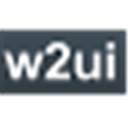Top OpenUI5 Alternatives for Your Web Development Needs
OpenUI5, an open-source JavaScript UI library maintained by SAP, is a powerful tool for building enterprise-ready, responsive web applications. It's built on JavaScript, uses jQuery, and adheres to web standards, offering a rich set of controls and data binding capabilities. However, like any software, developers often seek alternatives that might better suit specific project requirements, offer different feature sets, or align with particular development philosophies. This article explores some of the best OpenUI5 alternative options available today.
Exploring Excellent OpenUI5 Alternatives
Whether you're looking for a more lightweight solution, a different licensing model, or a specific set of UI widgets, these alternatives to OpenUI5 offer compelling choices for your next web development project.

jQuery UI
jQuery UI is an open-source library of interface components, including interactions, full-featured widgets, and animation effects, all built on the robust jQuery JavaScript library. As a free and open-source web platform, it offers strong features for user interaction and providing a wide range of widgets, making it a solid OpenUI5 alternative for those already familiar with jQuery.

DHTMLX
DHTMLX is a JavaScript library providing a comprehensive set of UI widgets designed to simplify web application development. Available as a freemium web platform, it's an excellent OpenUI5 alternative, particularly if you're working with Java or PHP and need a versatile UI library to create engaging web applications.

Webix UI
Webix UI is a JavaScript Library and HTML5 UI framework packed with widgets like SpreadSheet, Pivot, Kanban, FileManager, Scheduler, and DataTable. It's a commercial and open-source option that supports a vast array of platforms including Mac, Windows, Linux, Android, and iOS. Its rich feature set, including charts, data grids, and specialized boards, makes it a powerful OpenUI5 alternative for complex web development needs.

Dojo Toolkit
Dojo Toolkit is an open-source modular JavaScript library designed for rapid development of cross-platform applications. As a free and open-source web platform, Dojo Toolkit offers a robust framework for building modern web applications, serving as a solid OpenUI5 alternative for developers seeking a comprehensive and flexible toolkit.

w2ui
w2ui is a compact JavaScript UI library offering a complete set of widgets, including layout, grid, sidebar, toolbar, tabs, fields, and popup utilities. It's a free and open-source solution available for Mac, Windows, and Linux. With features like autocompletion and user interface components, w2ui provides a lightweight yet powerful OpenUI5 alternative for various UI development tasks.

Kendo UI
Kendo UI is a jQuery-based framework for rich UI development, enabling the creation of HTML5 applications that deliver a native look and feel across any device and browser. As a freemium platform supporting Mac, Windows, Linux, and Web, Kendo UI stands out as a strong OpenUI5 alternative, particularly for those prioritizing extensive UI capabilities and cross-platform compatibility.

Enyo
Enyo is a JavaScript app framework that empowers developers to build native-quality HTML5 applications capable of running everywhere—from phones and tablets to PCs and TVs. It's a free and open-source solution available for Mac, Windows, Linux, Android, and iOS. Its focus on broad device compatibility and developer tools makes it a compelling OpenUI5 alternative for highly versatile web development.

Essential JS 2 for JavaScript by Syncfusion
The Syncfusion JavaScript UI controls library, Essential JS 2, provides over 60 high-performance, lightweight UI controls for building applications. As a commercial platform available for Mac, Windows, and Linux, it includes a wide array of features like DataGrid, Charts, Tree Grid, and Pivot tables. This comprehensive suite makes it an excellent OpenUI5 alternative for developers needing a vast collection of robust UI components.
Ultimately, the best OpenUI5 alternative for you will depend on your specific project requirements, team expertise, and desired features. We encourage you to explore these options further to find the perfect fit for your development needs.